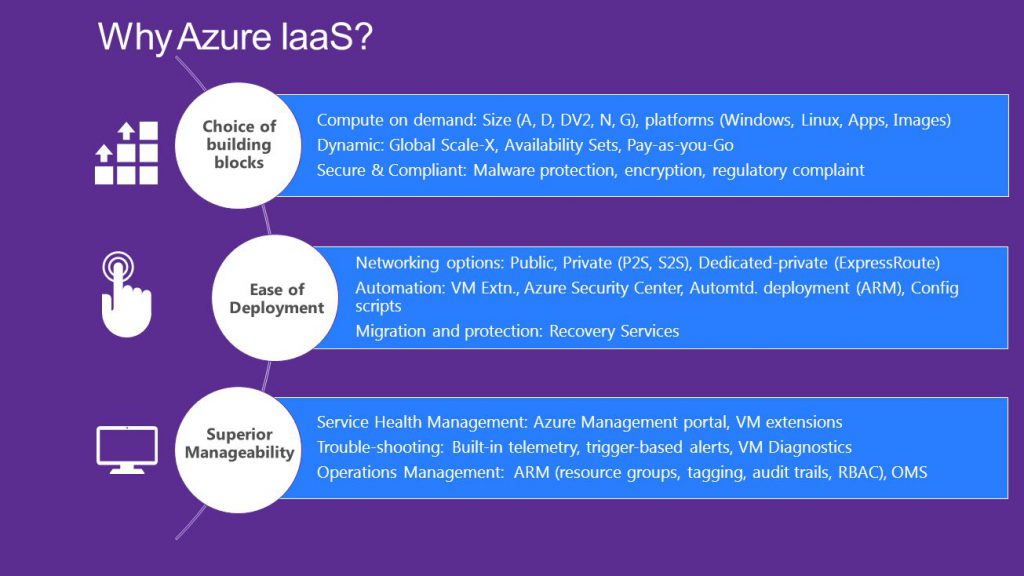In our previous blog Azure Services- Intro (Part 1), we saw an overview of Azure Services. In this article, we walk you through Azure IaaS Services.
- Infrastructure as a Service is an instant computing infrastructure provisioned and managed over the internet.
- IaaS helps you avoid the expense and complexity of buying and managing your own physical servers and other datacenter infrastructure.
- Each resource is offered as a separate service component and you only need to rent a particular one for as long as you need it.
The cloud computing service provider manages the infrastructure, while you purchase, install, configure and manage your own software—operating systems, middleware, and applications.

Azure IaaS Services
Compute Services
The term compute refers to the hosting model for the computing resources that your application runs on.
Azure Virtual machines are one of several types of on-demand, scalable computing resources offered by azure.
Azure Container Service allows you to quickly deploy a production-ready Kubernetes, DC/OS, or Docker Swarm cluster.
Storage Services
Microsoft Azure Storage is a Microsoft-managed cloud service that provides storage that is highly available, secure, durable, scalable, and redundant.
Azure Blob storage is a service for storing large amounts of unstructured object data, such as text or binary data, that can be accessed from anywhere in the world via HTTP or HTTPS.
Azure Files offers fully managed file shares in the cloud that are accessible via the industry standard Server Message Block (SMB) protocol.
Azure Managed Disks simplifies disk management for Azure IaaS VMs by managing the storage accounts associated with the VM disks.
Networking Services
Azure provides a variety of networking capabilities such as Connectivity with Azure resources, Internet Connectivity, On-premises Connectivity which can be used together or separately.
The Microsoft Azure Virtual Network service enables Azure resources to securely communicate with each other in a virtual network. A virtual network is a logical isolation of the Azure cloud dedicated to your subscription.
Azure Load Balancer delivers high availability and network performance to your applications. It is a Layer 4 (TCP, UDP) load balancer that distributes incoming traffic among healthy instances of services defined in a load-balanced set.
Azure DNS is a hosting service for DNS domains, providing name resolution using Microsoft Azure infrastructure.
Microsoft Azure ExpressRoute allows you to extend your on-premises networks into the Microsoft cloud over a private connection facilitated by a connectivity provider.
Microsoft Azure Traffic Manager allows you to control the distribution of user traffic for service endpoints in different data centres.
A VPN gateway is a type of virtual network gateway that sends encrypted traffic across a public connection to an on-premises location.
Microsoft Azure Application Gateway is a dedicated virtual appliance providing an application delivery controller (ADC) as a service. It offers various layer 7 load balancing capabilities for your application.












